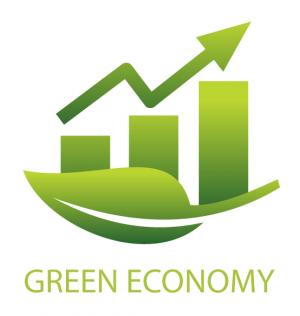Principles for the Green Economy
Description
Source: Earth Charter International, Stakeholder Forum, Bioregional
As we approach the UN Conference on Sustainable Development 2012 (UNCSD) or 'Rio+20', we stand at a critical moment in Earth's history, a time when humanity must choose its future. The identification of the 'green economy' as one of the key themes for the Summit represents a significant opportunity to define a new global economic paradigm, but it also entails a risk that previously 'hard-won' global agreements on sustainable development might be lost or obscured in the pursuit of new agenda. There are also as yet few definitions as to what constitutes a 'green economy', which make some actors weary about its potential application. Recognizing the challenges of this 'new' agenda, it is therefore critical that any global agreements that advance progress towards a green economy are governed by an over-arching set of principles that have common currency among governments and stakeholders alike. Arriving at an all-encompassing definition of a green economy may be both laborious and constraining, so the application of broader principles may ultimately prove more helpful. There is range of literature that can be drawn upon in the identification of some common guiding principles for the green economy. The following document aims to combine some of the most prominent existing principles relating to sustainable development and the green economy into a cohesive guiding tool. Fifteen principles have been identified that represent a consolidation of existing international agreements and more radical and forward-thinking proposals, cutting across The Stockholm Declaration, the Rio Declaration, The Johannesburg Declaration, The Earth Charter, The One Planet Living Principles, The Green Economy Coalition, the TUC Just Transition principles, and The New Economics Foundation. One of the goals of the Rio+20 Conference is to secure renewed political commitment for sustainable development. To enhance political will to achieve an ambitious outcome from Rio+20, the international community will have to agree on a common ethical framework of shared values and principles. This document offers State and non-State actors an overview the kinds of principles that might constitute that framework. This document has been put together by Stakeholder Forum in collaboration with Bioregional and the Earth Charter Initiative.
SDGS & Targets
Goal 8
Promote sustained, inclusive and sustainable economic growth, full and productive employment and decent work for all
8.1
8.1.1
Annual growth rate of real GDP per capita
8.2
Achieve higher levels of economic productivity through diversification, technological upgrading and innovation, including through a focus on high-value added and labour-intensive sectors
8.2.1
Annual growth rate of real GDP per employed person
8.3
Promote development-oriented policies that support productive activities, decent job creation, entrepreneurship, creativity and innovation, and encourage the formalization and growth of micro-, small- and medium-sized enterprises, including through access to financial services
8.3.1
Proportion of informal employment in total employment, by sector and sex
8.4
Improve progressively, through 2030, global resource efficiency in consumption and production and endeavour to decouple economic growth from environmental degradation, in accordance with the 10-Year Framework of Programmes on Sustainable Consumption and Production, with developed countries taking the lead
8.4.1
Material footprint, material footprint per capita, and material footprint per GDP
8.4.2
Domestic material consumption, domestic material consumption per capita, and domestic material consumption per GDP
8.5
8.5.1
Average hourly earnings of female and male employees, by occupation, age and persons with disabilities
8.5.2
Unemployment rate, by sex, age and persons with disabilities
8.6
8.6.1
Proportion of youth (aged 15-24 years) not in education, employment or training
8.7
Take immediate and effective measures to eradicate forced labour, end modern slavery and human trafficking and secure the prohibition and elimination of the worst forms of child labour, including recruitment and use of child soldiers, and by 2025 end child labour in all its forms
8.7.1
Proportion and number of children aged 5‑17 years engaged in child labour, by sex and age
8.8
Protect labour rights and promote safe and secure working environments for all workers, including migrant workers, in particular women migrants, and those in precarious employment
8.8.1
Fatal and non-fatal occupational injuries per 100,000 workers, by sex and migrant status
8.8.2
Level of national compliance with labour rights (freedom of association and collective bargaining) based on International Labour Organization (ILO) textual sources and national legislation, by sex and migrant status
8.9
By 2030, devise and implement policies to promote sustainable tourism that creates jobs and promotes local culture and products
8.9.1
Tourism direct GDP as a proportion of total GDP and in growth rate
8.10
Strengthen the capacity of domestic financial institutions to encourage and expand access to banking, insurance and financial services for all
8.10.1
(a) Number of commercial bank branches per 100,000 adults and (b) number of automated teller machines (ATMs) per 100,000 adults
8.10.2
Proportion of adults (15 years and older) with an account at a bank or other financial institution or with a mobile-money-service provider
8.a
8.a.1
Aid for Trade commitments and disbursements
8.b
By 2020, develop and operationalize a global strategy for youth employment and implement the Global Jobs Pact of the International Labour Organization
8.b.1
Existence of a developed and operationalized national strategy for youth employment, as a distinct strategy or as part of a national employment strategy
SDG 14 targets covered
Deliverables & Timeline
Resources mobilized
Partnership Progress
Feedback
Action Network


